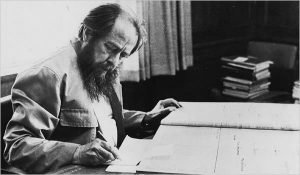This Day in History is DUE’s daily dose of trivia for all the history buffs out there. So sit back and take a ride of all the fascinating things that happened on 27th May!
People are trapped in history and history is trapped in people, and hence, every day has been a significant one in the foibles of history. Now, let’s take a tour of “This Day in History – 27th May”.
1905: The Battle of Tsushima Strait
Japanese fleet destroyed the Russian East Sea fleet in the Battle of Tsushima Strait, during the Russo-Japanese War. It was the only decisive clash between modern steel battleships in history. Only 10 of 45 Russian warships escaped to safety. The defeat convinced Russian leaders that further resistance against Japan’s imperial designs for East Asia was hopeless. Japan emerged from the conflict as the first modern non-Western world power. As for Russia, the war sowed the seeds for the Russian Revolution of 1905.

1963: Jomo Kenyatta becomes the first Prime Minister of Kenya
On this day, the people of Kenya voted for the first time in history for their own government. The Kenya African Nation Union (KANU) won a two-to-one majority of parliamentary seats. As a result, 73-year-old Jomo Kenyatta, leader of Kenya’s independence movement and head of KANU, became the nation’s first prime minister. Kenyatta, speaking to all Kenyans, promised peace and goodwill toward Britain and white settlers in the African nation. “We are not to look to the past — racial bitterness, the denial of fundamental rights, the suppression of our culture,” he said. “Let there be forgiveness.”

1964: Jawaharlal Nehru, the first Prime Minister of India, passes away
The first prime minister of independent India, Jawaharlal Nehru had established parliamentary government and become noted for his neutralist (nonaligned) policies in foreign affairs. He was also one of the principal leaders of India’s independence movement in the 1930s and ’40s. Nehru had been in declining health for some time, leading to a serious stroke in 1964. From 23 to 26 May, he went to Dehradun for a short rest, returning to his official residence at Teen Murti Bhawan in New Delhi. He woke early the next morning, complained of a pain in his back and suffered a stroke at 6:25. He fell unconscious and soon passed away without having regained consciousness.

1994: Nobel laureate Aleksandr Solzhenitsyn returns to Russia after exile
Two decades after the USSR had expelled him, Nobel laureate Aleksandr Solzhenitsyn returned to Russia in an emotional homecoming. In 1945, he was sentenced to eight years of hard labor for criticizing Stalin in a letter to a friend. His prison experiences formed the basis for his famous first novel One Day in the Life of Ivan Denisovich. In 1970, he was awarded the Nobel Prize in literature and began work on The Gulag Archipelago. Foreign publication of this work led to his expulsion from the USSR in 1974, and he settled in the United States. Soviet officials dropped charges of treason against him in 1990. One year later, the Soviet Union collapsed and in 1994 he returned home.

2018: BTS become the first K-pop band to top the US album charts
South Korean boy band BTS became the first K-pop artists to reach number one on the US album charts with their album Love Yourself: Tear. It topped the Billboard 200 music charts today. Sung in Korean, the album was ‘the first primarily foreign-language number one album in over 12 years’ according to Billboard. For the week ending on 24 May, it came in at 135,000 album units, pushing the previous weeks’ chart topper Post Malone to number two.

